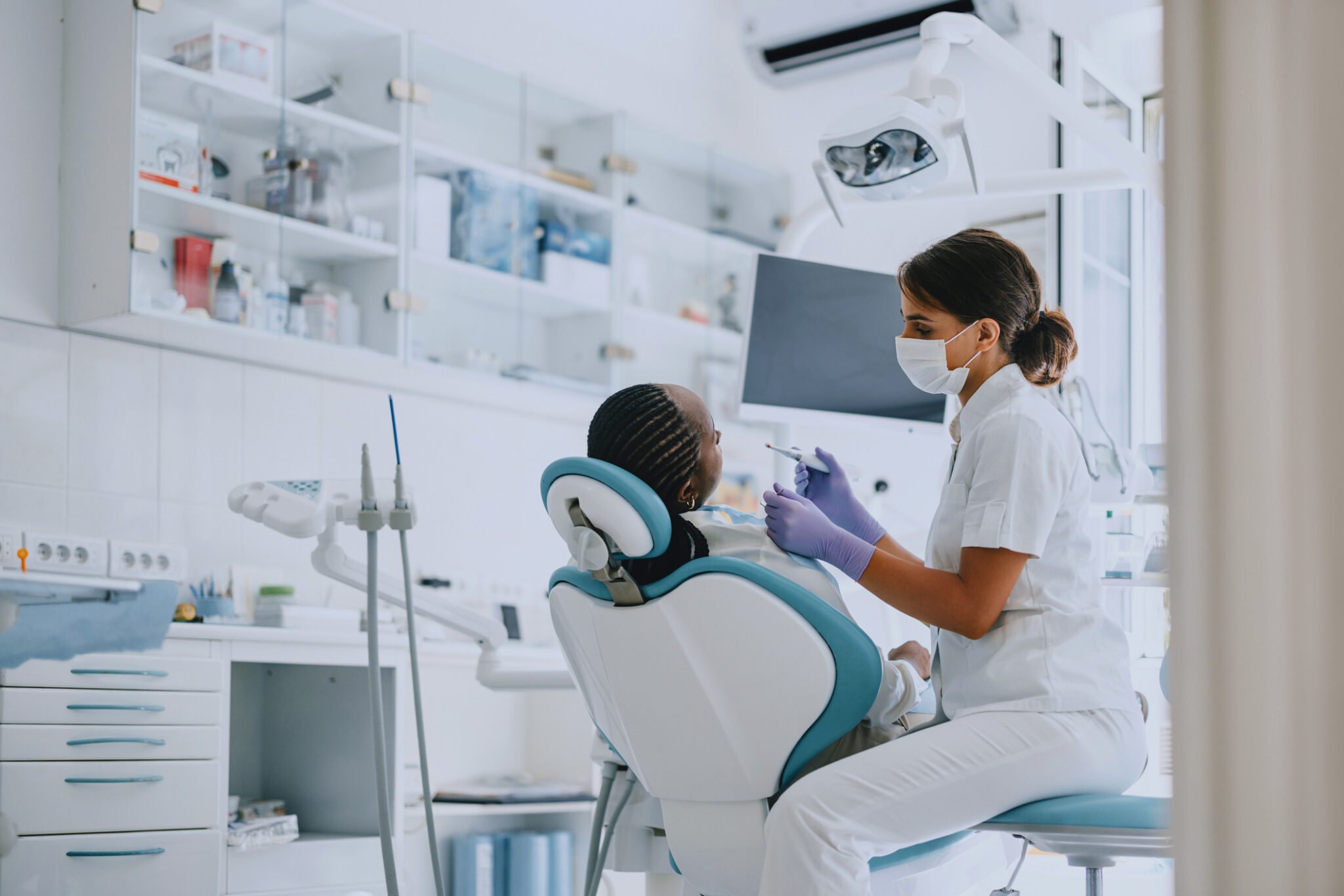Dentists in the Washington, DC, area are seeing an increase in patients who are coming in with broken, chipped, or cracked teeth. One big reason? People are more stressed—and that can result in them grinding their teeth or clenching their jaw.
“When you’re carrying stress, the teeth are one of the primary areas where you’re quickly going to see that effect,” says Despina Markogiannakis, a dentist in Chevy Chase.
While there can be other causes of this kind of tooth damage—including the side effects of medication—dentists saw a similar spike of cases during the Covid pandemic, and Markogiannakis suspects that anxiety is one of the main culprits again.
Leesburg dentist Atiyeh Emam is seeing not just more damaged teeth, but something else unexpected in her office: tears. “What I’ve noticed in the past couple weeks is the amount of emotions and uncertainty that people are going through right now,” she says.
According to the Mayo Clinic, the consequences of tooth grinding, or bruxism, are numerous. In the short-term, patients might suffer from broken, flattened, or loose teeth. Long-term bruxism can be more serious, sometimes leading to the exposure of sensitive tooth enamel, a locked jaw, or persistent pain in the face, neck, and mouth.
Bruxism is especially common in the DC area because, as dentist Mark Jefferies says, “people are stressed out around here.” Jason Cohen, a dentist in Chevy Chase, agrees: “There’s always been an issue with people around here clenching and grinding because of the stress of people’s jobs.” Or, more recently, the stress of losing those jobs.
Dentist-recommended remedies for tooth grinding include mouth guards, stress-management exercises, sleep studies, and, in some cases, Botox injections around the jaw. When a patient already has a bruxism-related fractured or chipped tooth, composite fillings or crowns are some of the most common treatments.
In recent months, Emam says that she’s also seen patients who, worried about losing their jobs, are being more frugal than usual. “They go with treatment that is less involved at the time, because of job uncertainty,” she says. “I had someone break a tooth last week and ask for a filling instead of a crown.”
On the flip side, she has also noticed an increase in patients trying to use their health insurance while they can: “People are worried that they’re going to lose their benefits and are coming in to get their teeth taken care of before they don’t have work.”














